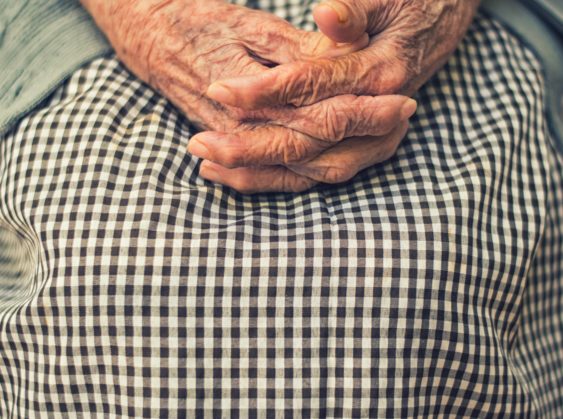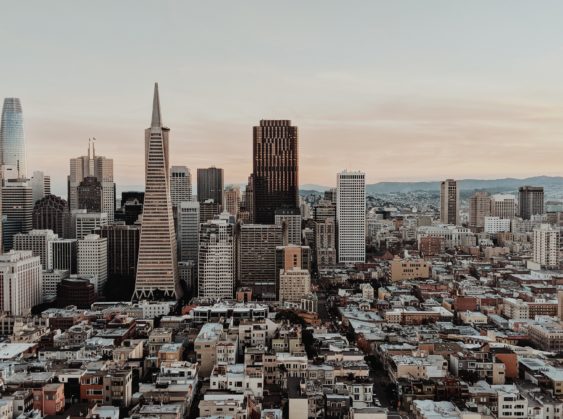I became disabled overnight in a car accident. The car accident was a dream, but the disability was real.
I dreamed I was driving through the ravaged streets of Oakland, Calif., at the end of the world. I turned the corner and careened inescapably into a white chemical blaze. I woke with a start, the white flash still burning behind my eyes, the worst headache of my life piercing my left temporal lobe. I remembered my mother having a brain aneurysm years before and knew the “worst headache of my life” was not to be ignored. My wife and I hurried to the hospital, expecting life to change forever. Once at the emergency room, things moved quickly: CT scans were ordered, crystal clear spinal fluid was drawn from my back. Eight hours later, I was told I was perfectly healthy.
What they meant, but wouldn’t say, was that they didn’t know what was wrong. Over the next weeks and months, it became obvious that I was far from well. The terrible headaches continued, I developed burning nerve pain all over my torso, I was wrapped in a thick brain fog, I sprouted mouth ulcers, I was crushed with exhaustion. I would open my mouth and be unable to speak. I could get lost in my own house between bedroom and bathroom, and forget my wife’s name. I started having seizures.
By then, I had discovered that I was no longer trusted by my doctors about my own body or experiences. I reported odd, terrifying and sudden physical changes; they recommended cognitive behavioral therapy and Weight Watchers. I felt exiled from the world of the well, isolated by thick walls of suspicion. I’m used to feeling like an outsider; I’m the first openly transgender rabbi ordained by a mainstream movement (Reform Judaism). I am used to being rejected and told I should not exist. But nothing prepared me for the outsider status of being chronically ill.
Think about that for a moment: Approximately 0.6 percent of American adults identify as transgender, just under 0.2 percent of the world population is Jewish, and 100 percent of us will get sick, yet it is being chronically sick that makes me feel like an outsider. That’s how much our society fears and rejects the core human experience of being ill, of having a body that gets sick, that ages, that is not controllable.
I went from doctor to doctor looking for answers, but overnight I had gone from being a trusted rabbi and chaplain (who works with seriously ill and dying people on hospital medical teams) to a “hysterical” chronically ill person. Though I had seen it happen to my clients, I now understood firsthand that being disbelieved is nearly universal for people with chronic illnesses, especially those that are largely invisible or hard to diagnose or both. I had believed that as a health care professional, equipped with skills and advocates to navigate the system, I would be treated differently. I soon learned how hubristic that was.
Eventually, because of the tireless advocacy of my wife, I was diagnosed with central nervous system lupus (an autoimmune disease that attacks the brain and central nervous system), as well as fibromyalgia, chronic fatigue syndrome and complex migraines. My lupus diagnosis would later be taken away and then given back countless times as suited the needs of health insurance and disability insurance companies to sort and manage me and decide how much care I was entitled to. The needs of my body were virtually irrelevant in this process as my diagnosis become a monetized affair where I had to jump through increasingly difficult hoops to “prove” it.
Like most of us, I had been raised to see illness as something temporary: a stopover on the way to recovery or to death, not a place to live. But weeks, months and then years passed, and I did not get better. My doctors, and even some friends and family members, suggested that I could get better if only I tried harder, relaxed more deeply, thought more positively. I became a lightning rod for others’ fears of disability, dependence and fragility. In a political moment where health care is treated as a luxury and hurricane victims are blamed for their own disasters, an ethic of personal responsibility reigns. But sometimes, sick people just stay sick. And there’s no meditation, medication, positive outlook, exercise or smoothie that can fix it.
Eventually, I stopped hoping to be well, or even pretending that I lived in that future-heavy land of hope anymore. I stopped trying to “overcome” my body and started living a present-tense life in chronic illness. As the pace of my life slowed, I could appreciate sensual pleasures in a new and heightened way: sunlight outside my bedroom window, my dog’s velvety fur, a cool breeze in my garden, richly colored flowers. On days when my brain was too fogged to do anything, I let myself float in and out of a rich, infinitely layered dream world.
With great difficulty, I learned how to accept care. A child of neglectful and absent parents, I had been fiercely independent for most of my life; now, as fatigue gripped my body, I needed help preparing food, showering, doing laundry, managing my medications. This demanded a difficult, profoundly spiritual vulnerability. I realized that if I were truly to see myself as equal to my seriously ill clients, and not performing a kind of “charity” in my work, I had to come to terms with the necessity of interdependence.
We are born needing care and die needing care, and I am no exception. At brief moments in the middle of life, we hold the illusion of independence, but we are always driving on roads we did not build, eating foods we did not pick or raise. Allowing the illusion of my own independence to drop away unmasked a fundamental truth of being human.
Like many people, I had once measured my worth by my capacity to produce things and experiences: to be productive at work, share responsibilities at home, “show up” equally in my friendships and rack up achievements. Being sick has been a long, slow detox from capitalist culture and its mandate that we never rest. Slowly, I found a deeper value in relationship beyond reciprocity: an unconditional love and care based in justice, and a belief that all humans deserve relationship, regardless of whether we can offer anything measurable back. In these discoveries, I’ve been led by other sick and disabled people, whose value had always been apparent to me. Amid the brilliant diversity of power wheelchairs, service dogs, canes and ice packs, it’s easy to see that we matter just as we are.
Eventually, my body did change. I am now able to stay awake longer, and my pain has receded to a dull throb. I can leave the house more; I can visit my clients and mentor my hospice volunteers, for which I am grateful. But I don’t see myself as cured, nor do I imagine a cure will come. This is merely another chapter in the life of my body. If I’m lucky enough to get old, my body will change again. Because of my illnesses and family history, I’m more likely to develop dementia. As I age, my body and mind will surely become more disabled. I will lose cognitive and sensory capacities. My skin and muscles will sag and disintegrate. I will depend more and more on other people. I will not be able to control my bowels or my surroundings as tightly. I will lose teeth, hair and precious memories. This is not a tragedy. This is what it means to be human.
Elliot Kukla is a rabbi at the Bay Area Jewish Healing Center in San Francisco and a co-director at the Kol Haneshama: Jewish End of Life Care volunteer hospice program. This article first appeared in The New York Times.


